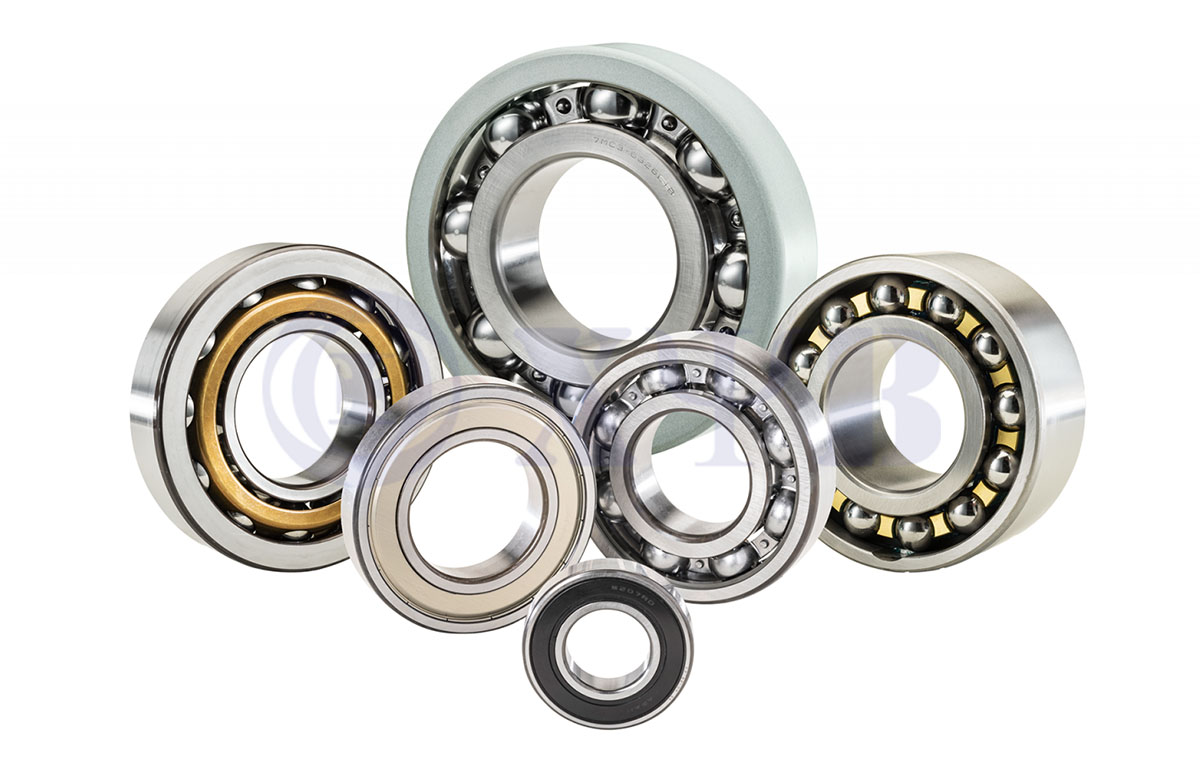What Makes Ball Bearings Essential for Modern Machinery?
2024-12-24
Ball bearings are small, yet incredibly powerful components that play a crucial role in countless machines and devices. But what makes ball bearings essential for modern machinery? In this blog, we’ll explore the importance of ball bearings, their working principle, and how they enhance the performance and longevity of machinery across various industries.
What Are Ball Bearings?
A ball bearing is a type of rolling-element bearing that uses spherical balls to maintain the separation between the moving parts of a machine. These spherical balls reduce friction and allow for smooth, efficient rotation or linear movement. Ball bearings are typically composed of an inner ring (or race), an outer ring (or race), and the balls themselves, which roll between the two rings.
How Do Ball Bearings Work?
Ball bearings work on a simple yet effective principle: they reduce friction between moving parts by allowing them to roll rather than slide. When a machine operates, components like shafts or spindles rotate within the bearing, and the ball bearings distribute the load evenly across their surfaces. This mechanism minimizes wear and tear, resulting in smoother and more efficient motion.
The key feature of ball bearings is their ability to handle both radial and axial loads. Radial loads are forces that act perpendicular to the axis of rotation, while axial loads are forces that act parallel to the axis. Ball bearings can handle both types of loads, making them highly versatile for a wide range of applications.
Why Are Ball Bearings So Important?
1. Reducing Friction
One of the primary reasons ball bearings are essential in machinery is their ability to reduce friction. Friction is a major source of heat and wear in mechanical systems, and by reducing it, ball bearings help prevent damage to components, ensuring the machine runs efficiently and smoothly. Less friction also means lower energy consumption, making machinery more energy-efficient.
2. Increasing Speed and Performance
Ball bearings enable faster and more precise movement by minimizing the resistance caused by friction. This is particularly crucial in high-speed machines, such as motors, turbines, and conveyors, where quick and smooth motion is needed. By providing smoother motion, ball bearings allow machines to perform at higher speeds and with greater accuracy, boosting productivity.
3. Enhancing Longevity
The smooth and efficient motion provided by ball bearings helps reduce wear and tear on components. This prolongs the life of the machinery, as less friction means less heat and less mechanical stress. The result is less frequent maintenance, fewer breakdowns, and an extended lifespan for expensive equipment.
4. Versatility Across Industries
Ball bearings are used in almost every industry, from automotive to aerospace, manufacturing, robotics, and consumer electronics. Their versatility makes them adaptable to a wide range of applications, from small motors in home appliances to large-scale industrial machinery. Whether in the engine of a car, the spindle of a lathe, or the fan of a computer, ball bearings are at the heart of many systems.
Different Types of Ball Bearings
There are several types of ball bearings, each designed for specific applications and environments:
1. Deep Groove Ball Bearings: These are the most common type of ball bearing. They are versatile, capable of handling both radial and axial loads, and are used in a variety of machines and equipment.
2. Angular Contact Ball Bearings: These bearings are designed to handle higher axial loads, making them ideal for high-speed applications such as electric motors and pumps.
3. Self-Aligning Ball Bearings: These bearings can accommodate slight misalignments, making them perfect for machinery that experiences shaft deflections or alignment issues.
4. Thrust Ball Bearings: These bearings are designed to handle axial loads only and are commonly found in applications like automotive clutches and thrust washers.
5. Miniature Ball Bearings: As the name suggests, these bearings are smaller in size and are used in compact machinery such as watches, medical devices, and precision instruments.
Ball Bearings in Everyday Applications
Ball bearings are integral to the function of many everyday products and machines. Some examples of where ball bearings are commonly used include:
1. Automobiles: Ball bearings are used in engines, wheel hubs, transmissions, and air conditioning compressors to reduce friction and increase efficiency.
2. Electronics: In devices like hard drives, computer fans, and printers, ball bearings ensure smooth operation and reduce noise.
3. Aerospace: Aircraft components, such as turbines, landing gears, and actuators, rely on ball bearings to ensure reliable and precise operation.
4. Home Appliances: Appliances such as refrigerators, washing machines, and vacuum cleaners depend on ball bearings to maintain smooth, efficient performance.
5. Sports Equipment: From skateboards to bicycles and fishing reels, ball bearings provide the necessary smooth motion to keep things running efficiently.
How to Choose the Right Ball Bearing
Choosing the right ball bearing for a specific application depends on several factors, including load capacity, speed requirements, and environmental conditions. Considerations include:
- Load Type: Determine whether the bearing will experience radial or axial loads, or a combination of both.
- Speed: Some bearings are designed for high-speed operations, while others are better suited for low-speed applications.
- Material: For environments with high temperatures or corrosive elements, bearings made from stainless steel, ceramic, or other specialized materials may be necessary.
- Precision: Depending on the application, you may need bearings with high precision to maintain performance and accuracy.
Conclusion
In summary, what makes ball bearings essential for modern machinery? Their ability to reduce friction, improve performance, and increase the longevity of machines makes them indispensable in almost every industry. From cars and airplanes to electronics and home appliances, ball bearings help machinery run smoothly and efficiently. Whether for everyday use or specialized applications, these tiny components have a huge impact on the functionality and durability of machines, making them one of the most important innovations in modern engineering.



